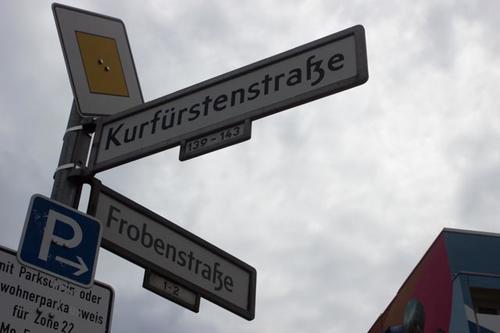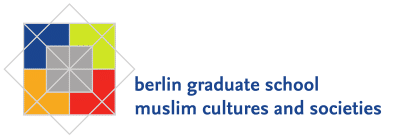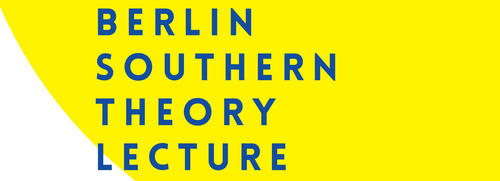Sex/Work in Berlin – Migration, commercialized sexuality and (Eastern) European Bodies in Berlin
Precarious Freedoms
Embodied processes of subjectification across sex, work, and (Eastern) Europe in Berlin
Since its reunification, Berlin has (once again) developed into a political power center and a 'European' metropolis, known far beyond its borders for its (sexual) tolerance. From a hegemonic 'Western European' or West German perspective, the German capital thus functions as a symbol for the freedoms of a united 'Europe'. At the same time, Berlin represents an urban space in which the boundaries of (Western) 'European' belongings are drawn and negotiated on various levels. One arena of these negotiations are the media and political discussions about 'Eastern European prostitutes' that have shaped sex work discourses in Berlin and Germany at large since the 2000s. However, in these discourses, the figure of the 'Eastern European prostitute' primarily serves as a symbol for migration panics and the peripheralization of 'Eastern Europe', while the perspectives, motivations, and realities of people from 'Eastern European' countries who engage in sex work in Berlin are rarely taken into account.
What are the living and working realities of sex-working migrants from 'Eastern European' countries in Berlin? And how do embodied negotiations of European East-West dichotomies (Lewicki 2020) manifest themselves in the everyday lives of sex-working migrants from 'Eastern Europe'? I pursued these questions through ethnographic fieldwork from July 2017 to August 2018. During this period, I conducted participant observations in the Kurfürstenkiez neighborhood, an area known for street-based sex work in Berlin, in so-called 'hustler bars' in the Nollendorfkiez neighborhood as well as in several Berlin strip clubs. Furthermore, I visited numerous brothels, conducted research on online platforms for escort services, and spoke with 45 sex workers from Bulgaria, Latvia, Lithuania, Poland, Romania, Russia, Ukraine, and Hungary about their everyday lives in Berlin.
The realities of my interlocutors were very heterogeneous: They were students and trainees, single mothers, young men, people affected by poverty, academics, and workers, who at first glance had little more in common than the fact that they were in Berlin and engaged in various forms of sex work to make a living in the city. However, as I demonstrate in this study, these individuals were also united by the fact that their everyday lives and work unfolded in a field of tension between affiliations with and exclusions from a neoliberal 'Europe' shaped by ideals of white, 'Western European' middle and upper classes.
The mobile orientations (Mai 2018) of my interlocutors were closely connected to related notions of (Western) 'Europe' as a space of realization or individual realizability of a 'good life'. Although not all participants were oriented towards a permanent life in Berlin, it was nevertheless the urban space of the German capital that made social mobilities appear tangible, especially since the heterogeneities of the city also enabled an anonymous or secret involvement in sex work, the latter representing both a possibility and a necessity for the realization of the participants' mobile orientations.
Yet, in Berlin, the participants were also confronted with the fact that this (implicitly Western) 'Europe' was juxtaposed with a 'not-yet-quite-European' 'Eastern Europe' which had to prove its 'Europeanness' to be accepted as part of 'Europe' (Parvulescu 2014). This devaluation of 'Eastern Europe', which in Berlin was also based on specific historical relations between Germany and the regions east of it, entailed a marginalization and precarization of those categorized as 'Eastern European'. Because 'Eastern Europe' does not represent a clearly defined geographical area but rather a construct determined by ethnicized, racialized, gendered, and socio-economic hierarchies. This enabled the participants to negotiate their belonging to '(Eastern) Europe' in different contexts. Central to this were the (im)possibilities and necessities of embodying (Western) 'European' values and norms, such as a certain standard of living, a (neo‑)liberal approach to sexuality, and the performance of (Western) 'European' whiteness.
However, these individual negotiations proved to be not only a challenge to European East-West dichotomies but also a moment of their (re)production. The promises of mobility and self-realization through individual commitment entailed in hegemonic neoliberal ideas of (Western) 'Europe' at the same time concealed the fact that the provision of these freedoms is based on structural exclusion and exploitation of all those who are juxtaposed to the hegemonic (Western) 'Europe' as non(-fully) 'European' others. Thus, the participants remained caught in a tension between a (desired) participation in 'European' freedoms and a marginalization as 'Eastern Europeans', whereby their freedoms were present but nevertheless precarious.
PhD Project (2016-2022)
Supervisors: Prof. Dr. Hansjörg Dilger and Prof. Dr. Thomas Stodulka
Funding: Elsa-Neumann-Scholarship of the State of Berlin (2017-2020)



